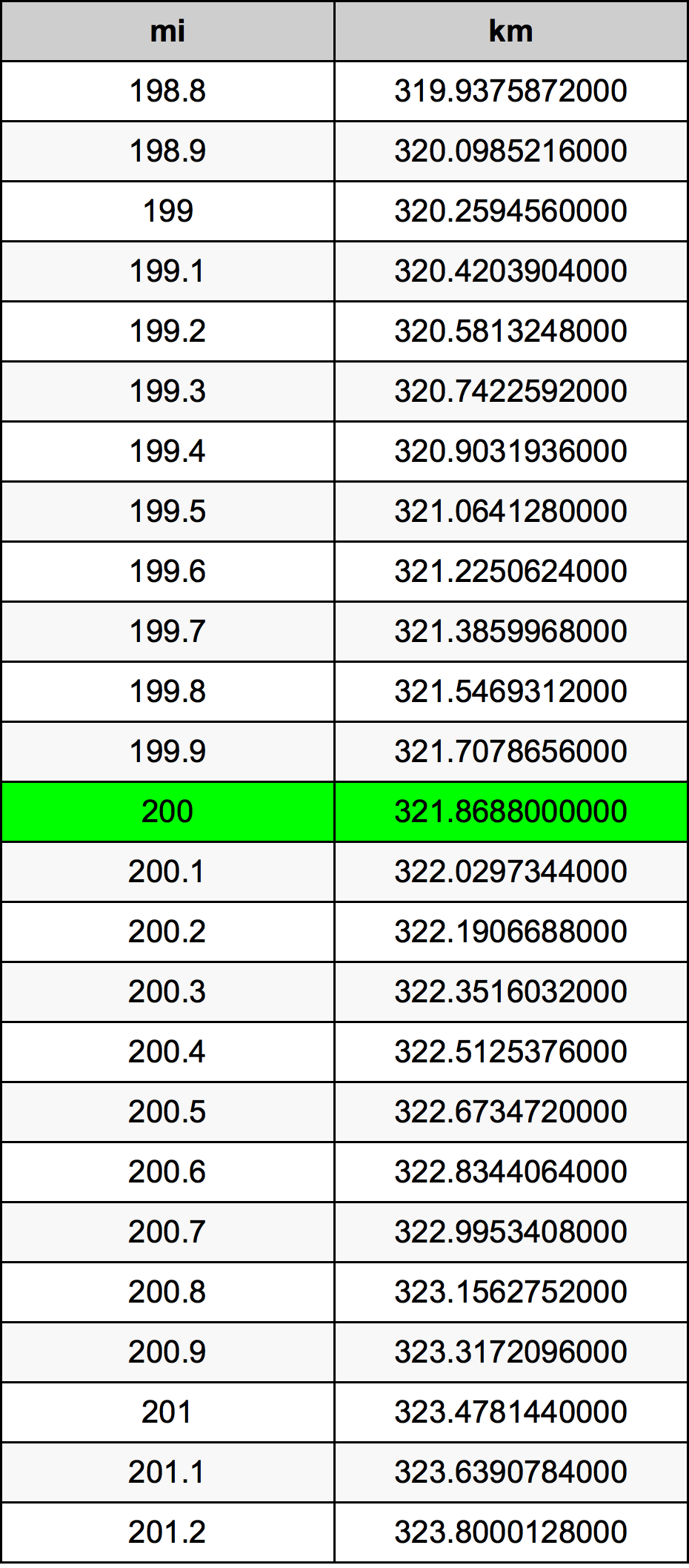As a Canadian traveler, converting distances from miles to kilometers can be a daunting task. If you’re trying to figure out how many kilometers equal 200,000 miles, you’ve come to the right place. In this article, we’ll provide you with an easy conversion method that will simplify your travel plans and ensure accurate distance measurements.
Understanding the Miles to Kilometers Conversion
Before we delve into converting 200,000 miles to kilometers, it’s important to understand the basic concept of the conversion process.
Miles and kilometers are both units of measuring distance, but they differ in the value assigned to them. One mile is equivalent to 1.60934 kilometers. This means that if we want to convert miles to kilometers, we need to multiply the number of miles by the conversion factor of 1.60934.
Understanding this conversion factor is crucial in making accurate distance measurements, particularly when traveling in Canada, where the metric system is widely used.
The Miles to Kilometers Conversion Factor
The conversion factor between miles and kilometers is a simple value of 1 mile = 1.60934 kilometers. This means that when converting miles to kilometers, we simply need to multiply the number of miles by 1.60934 to get the equivalent distance in kilometers.
Pro Tip: To make conversions even easier, keep in mind that 5 miles is roughly equivalent to 8 kilometers, and 10 miles is roughly equivalent to 16 kilometers.
While this may seem like a small difference, it can make a significant impact on distance measurements and travel planning. It’s important to have a good grasp of the conversion factor to ensure accurate and efficient travel plans in Canada.
Conversion Chart for Miles to Kilometers
If you’re looking for a quick reference for converting miles to kilometers, look no further than this handy conversion chart. With this chart, you can easily convert different distances from miles to kilometers, including the 200,000 miles we are focusing on.
| Miles | Kilometers |
|---|---|
| 1 | 1.60934 |
| 10 | 16.0934 |
| 50 | 80.4672 |
| 100 | 160.934 |
| 500 | 804.672 |
| 1000 | 1609.34 |
| 10,000 | 16,093.4 |
| 50,000 | 80,467.2 |
| 100,000 | 160,934 |
| 200,000 | 321,869 |
Whether you’re planning a long-distance road trip or simply need to convert a few distances, this conversion chart for miles to kilometers is a valuable tool to have at your disposal. Simply find the number of miles you need to convert and refer to the corresponding number of kilometers in the chart.
Converting 200,000 Miles to Kilometers
Now let’s get to the main point of this article – converting 200,000 miles to kilometers. By using the conversion factor mentioned earlier (1 mile = 1.60934 kilometers), we can simply multiply the number of miles by the conversion factor to obtain the equivalent distance in kilometers.
| Miles | Kilometers |
|---|---|
| 200,000 miles | 321,868.8 kilometers |
As shown in the table above, 200,000 miles is equivalent to 321,868.8 kilometers. This conversion can be useful when planning a road trip or determining the distance between two cities.
It’s important to note that this conversion factor applies to any distance measured in miles. So, whether you’re converting 1 mile or 1,000 miles, you can use the same conversion factor to get the equivalent distance in kilometers.
If you’re dealing with distances that are not a multiple of 1 mile, you can still use the same conversion factor by converting the distance into fractions of a mile. For example, 1.5 miles is equivalent to 2.41402 kilometers (1.5 x 1.60934).
Converting 200K Miles to KM
When referring to 200,000 miles in shorthand, you may see it written as “200K miles”. The conversion process for 200K miles to kilometers remains the same as outlined above. Simply multiply 200,000 by 1.60934 to get the equivalent distance in kilometers.
Therefore, 200K miles is equivalent to 321,868.8 kilometers.
Whether you’re dealing with a long distance like 200,000 miles or a shorter distance like 10 miles, understanding the conversion process can make your travel planning easier and more accurate. With this knowledge, you can confidently communicate and measure distances in kilometers, whether you’re traveling in Canada or other metric countries.
Using a Miles to Kilometers Calculator
If you find it tedious to do the conversion manually using the conversion factor or formula, you can take advantage of the miles to kilometers calculator available online. These calculators are free and easy to use, allowing you to quickly and effortlessly convert any distance from miles to kilometers or vice versa.
All you need to do is enter the distance in miles, and the calculator will instantly calculate and display the equivalent distance in kilometers. Some calculators even provide additional features such as rounding decimals and allowing you to choose the number of significant figures to display.
Using a miles to kilometers calculator can be especially useful when you need to convert multiple distances quickly or when you’re on the go and need to get an instant conversion without having to do the math manually.
The Miles to Kilometers Formula
For those who prefer to understand the underlying formula, the conversion of miles to kilometers can be done using the following formula: kilometers = miles x 1.60934. This formula is based on the conversion factor we mentioned earlier and is a straightforward way to calculate the conversion manually. Simply multiply the number of miles by 1.60934 to obtain the equivalent distance in kilometers.
Benefits of Converting Miles to Kilometers
Converting miles to kilometers can offer several benefits to Canadian travelers. Canada uses the metric system, which means that distances are typically measured in kilometers. By converting miles to kilometers, you can easily communicate and understand distances within Canada without confusion or miscalculations. This can be especially helpful when planning road trips, hikes, or other travel adventures.
Additionally, knowing how to convert miles to kilometers can also be beneficial when traveling to other countries that use the metric system. Understanding and using the local units of measurement can facilitate communication and help prevent misunderstandings.
Overall, learning how to convert miles to kilometers can help make your travels smoother and more enjoyable. Whether you choose to use a conversion chart, calculator, or formula, having an understanding of the conversion process can save you time, effort, and potential headaches down the road.
Other Common Conversion Scenarios
While converting 200,000 miles to kilometers is a common scenario, there are many other conversions that travelers may encounter. Here are some other common scenarios:
Converting Shorter Distances
When converting shorter distances, such as the length of a room or the distance to a nearby attraction, it may be more practical to use smaller units of measurement. For example, 1 mile is equivalent to 1.60934 kilometers, but 1 kilometer is equivalent to 1000 meters. The conversion factor between meters and feet is 1 meter = 3.28084 feet.
Converting Longer Distances
For longer distances, such as the length of a highway or the distance between cities, it may be more practical to use larger units of measurement. For example, 1 mile is equivalent to 1.60934 kilometers, but 1 kilometer is equivalent to 0.62137 miles. The conversion factor between miles and kilometers can be reversed by dividing the distance in kilometers by the conversion factor.
Converting Kilometers to Miles
Converting kilometers to miles is the inverse of converting miles to kilometers. Instead of multiplying the distance by the conversion factor, we divide the distance in kilometers by the conversion factor. For example, 200,000 kilometers is equivalent to 124,274.238 miles.
Using More Precise Conversion Factors
The conversion factor between miles and kilometers used in this article is accurate to five decimal places, which is suitable for most practical purposes. However, for scientific or technical applications that require more precision, different conversion factors may be used. It is important to ensure that the correct conversion factor is used for the intended purpose.
Conclusion: Simplify Your Travel Plans with Easy Conversions
Converting 200,000 miles to kilometers may seem daunting at first, but it’s a simple process that can greatly benefit Canadian travelers. By understanding the conversion factor between miles and kilometers, you can confidently communicate distances within Canada without confusion or misunderstandings.
Why Converting Miles to Kilometers Matters
Canada uses the metric system, which means that distances are typically measured in kilometers. If you’re accustomed to using miles, converting to kilometers can help you avoid miscalculations and misunderstandings. Additionally, knowing how to convert between the two units can save you time and effort when planning your travels within Canada.
Tools for Easy Conversions
Whether you prefer to use a conversion chart, calculator, or formula, there are many tools available to help make the conversion process easy. The conversion chart provides a quick reference for converting different distances, while online calculators offer the convenience of instant conversions. If you prefer to do the math manually, the simple formula can be a helpful tool.
Other Conversion Scenarios
Aside from converting 200,000 miles to kilometers, there are many other common conversion scenarios that travelers might encounter, including shorter or longer distances. Understanding the conversion process and having the necessary tools at hand can be helpful in various travel situations.
By taking the time to understand the miles to kilometers conversion process and using the available tools, Canadian travelers can confidently communicate and understand distances within Canada. Simplify your travel plans with easy conversions and enjoy a smooth journey.
FAQ
Q: How do I convert 200,000 miles to kilometers?
A: To convert 200,000 miles to kilometers, you can simply multiply the number of miles by the conversion factor of 1.60934. So, 200,000 miles x 1.60934 = 321,868 kilometers.
Q: What is the conversion factor for miles to kilometers?
A: The conversion factor between miles and kilometers is 1 mile = 1.60934 kilometers. This means that for every mile, there are approximately 1.60934 kilometers.
Q: Can I use a calculator to convert miles to kilometers?
A: Yes, there are online miles to kilometers calculators available that can quickly convert distances for you. Simply input the distance in miles, and the calculator will provide the equivalent distance in kilometers.
Q: Is there a formula for converting miles to kilometers?
A: Yes, the formula for converting miles to kilometers is kilometers = miles x 1.60934. This formula is based on the conversion factor between the two units and allows for manual calculation.
Q: Are there any benefits to converting miles to kilometers?
A: Yes, converting miles to kilometers can be beneficial, especially for Canadian travelers. Canada uses the metric system, which means that distances are typically measured in kilometers. By converting miles to kilometers, you can easily communicate and understand distances within Canada without confusion or miscalculations.
Q: What other conversion scenarios might I encounter?
A: Aside from converting 200,000 miles to kilometers, there are many other common conversion scenarios that travelers might come across. These include converting shorter distances, longer distances, or even converting kilometers to miles. Understanding the conversion process and having the necessary tools at hand can be helpful in various travel situations.




